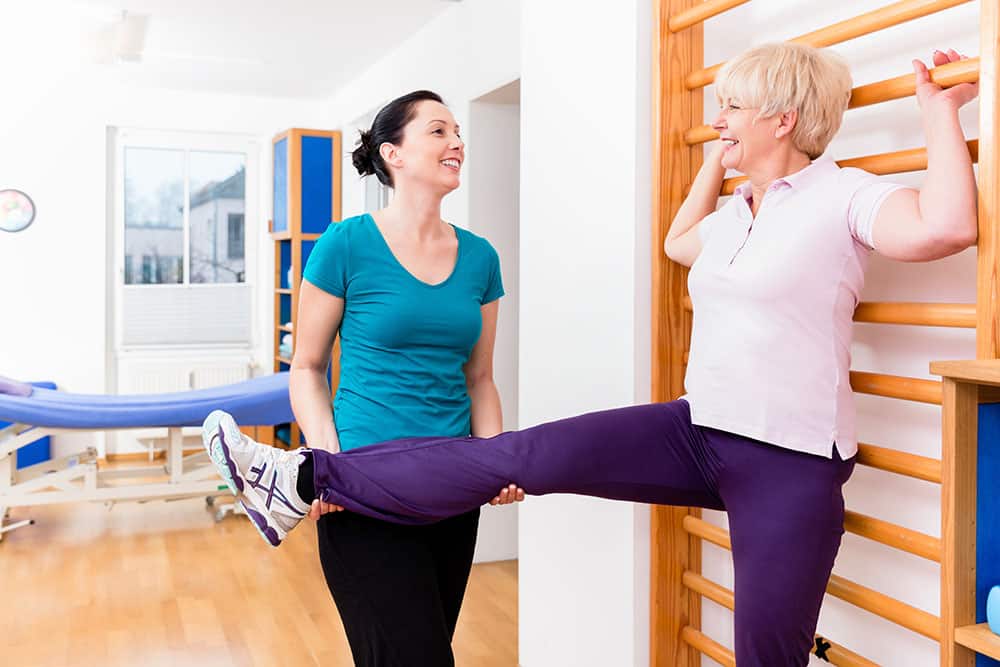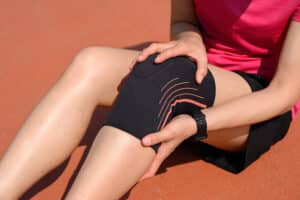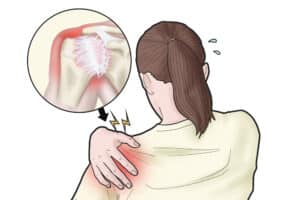Physiotherapy in senior care is imperative. As we age, the changing landscape of our physical health often presents new challenges, including diminished strength, balance, and mobility. This can increase the risk of falls and injuries, leading to a consequent reduction in independence. However, aging need not be synonymous with these challenges. One invaluable tool in mitigating these issues is physiotherapy in senior care.
Physiotherapy plays a crucial role in safeguarding the health and autonomy of our older population. It’s a non-invasive, holistic approach that fosters wellness, mobility, and self-reliance, enabling seniors to enjoy an active and enriching life. This article explores how physiotherapy in senior care contributes to overall health, focusing on tailored exercises, balance training, fall prevention, and pain management for seniors.
Physiotherapy in Senior Care: Tailoring Exercises for the Elderly
Exercise remains critical across all ages, including the golden years. Physiotherapy in senior care involves creating customized exercise programs suited to an individual’s capabilities, health conditions, and personal goals. These exercises usually aim at improving muscle strength, flexibility, endurance, and cardiovascular fitness.
For instance, strength training can counteract age-related muscle loss, enhancing physical function and reducing frailty. Low-impact aerobic exercises, such as walking or swimming, help improve heart health without excessive joint strain. Flexibility exercises aid in maintaining joint health and can ease daily activities like dressing or reaching for items.
Balance Training in Physiotherapy for Senior Care
Balance training is beneficial because as we age, our sense of balance can deteriorate due to various factors such as muscle weakness, joint stiffness, or changes in the inner ear, all of which can increase the risk of falls.
Physiotherapy in senior care actively addresses this issue through balance training. Physiotherapists provide activities and exercises designed to improve coordination, stabilize posture, and enhance proprioception (the body’s ability to sense its position), all crucial to maintaining balance.
Here are some components of balance training in physiotherapy for senior care:
Strength Training: Strength training aims to build the muscle power needed to maintain balance. For seniors, it’s particularly important to focus on the lower body muscles like the quads, hamstrings, calves, and glutes, as they provide stability during movements like walking or standing from a seated position.
Flexibility and Stretching Exercises: Maintaining flexibility is crucial for balance. As we age, our joints may lose some of their range of motion, which can affect balance. Regular stretching exercises can help to preserve flexibility and enhance balance.
Dynamic Balance Training: These exercises require the person to maintain balance while moving. Examples include walking heel-to-toe or stepping over objects while keeping balance.
Static Balance Training: Static exercises involve maintaining balance in one position. This could involve standing on one foot or standing with the feet close together.
Dual-Task Training: This involves performing a cognitive task while maintaining balance or performing a physical task. An example could be standing on one foot while doing mental arithmetic. It helps improve the brain’s ability to process information and execute motor tasks simultaneously.
Sensory Training: Our balance is influenced by our visual, vestibular, and proprioceptive systems. Sensory training can help improve the integration of these systems. This can involve exercises like standing on different surfaces or closing the eyes while balancing.
Gait Training: This involves improving walking patterns and transitions, such as sitting to standing, turning, and stepping.
Postural Education: This involves learning how to maintain proper postures during different activities, which can improve balance and reduce the risk of falls.
Use of Assistive Devices: In some cases, canes, walkers, or other assistive devices may be needed to help seniors maintain their balance. Physiotherapists can guide seniors on how to use these devices effectively.
Physiotherapy in Senior Care: Focusing on Fall Prevention Strategies
Fall prevention is a major aspect of physiotherapy in senior care. Physiotherapy exercises can play a significant role in fall prevention for seniors. By focusing on aspects such as balance, strength, mobility, and flexibility, these exercises can reduce the risk of falling by improving physical capabilities and boosting confidence.
Additionally, physiotherapists conduct thorough evaluations of a senior’s strength, gait, and balance to identify any potential fall risks. Based on this holistic analysis, they recommend targeted interventions, like the use of assistive devices such as canes or walkers, to prevent falls and related injuries.
Pain Management through Physiotherapy in Senior Care
Chronic pain is a common issue among older adults, resulting from various conditions like arthritis, osteoporosis, or neuralgia. Physiotherapy in senior care offers an array of methods to manage this pain. Techniques like massage or joint mobilization can help alleviate pain and improve mobility. Other therapies, such as heat, cold, ultrasound, or electrical stimulation, are employed too. Physiotherapists educate seniors on self-management strategies, such as pacing activities and using mindfulness techniques.
Embracing the Benefits of Physiotherapy in Senior Care
Physiotherapy in senior care is a tool of untapped potential, offering an array of benefits that extends far beyond the obvious enhancements in physical health. It’s an excellent non-invasive, non-pharmaceutical treatment option, acts as a valuable asset in pre- and post-surgery scenarios, provides immense mental health benefits, and crucially, bolsters the independence of seniors.
A Non-Invasive, Non-Pharmaceutical Treatment Option
Physiotherapy for seniors stands out as an excellent non-invasive and non-pharmaceutical treatment option. By focusing on building strength and flexibility, it can address a range of health issues, while also preventing injuries and the invasive treatments they might necessitate.
Furthermore, physiotherapy offers an alternative to pain medications. Even over-the-counter options can sometimes interact unfavourably with other medications taken for chronic conditions. By reducing the need for additional medication, physiotherapy plays an essential role in any comprehensive health and wellness plan.
Pre- and Post-Surgery Physiotherapy
While physiotherapy often helps avoid surgery, there are instances when surgical interventions are unavoidable. In such cases, physiotherapy can make a significant difference.
Pre-surgery, it aids in building strength and enhancing cardiovascular capacity and circulation, which are vital for a successful recovery.
Post-surgery, physiotherapy assists patients in regaining their strength and mobility, helping them return to their normal activities and enhancing their quality of life.
Mental Health Benefits
The benefits of physiotherapy in senior care extend to mental health as well. Regular physical activity, including the targeted exercises used in physiotherapy, can alleviate anxiety and depression by triggering the release of endorphins, the body’s natural mood boosters. For seniors adjusting to changes in their lifestyle, retirement, or managing physical pain, these mental health benefits are as important as the physical ones.
Promoting Independence
Perhaps one of the most critical benefits of physiotherapy in senior care is the promotion of independence. All the benefits cumulatively contribute to this vital aspect of seniors’ lives. Effective physiotherapy can help seniors maintain their mobility, allowing them to continue doing the activities they love, from driving to gardening.
Maintaining independence plays a key role in a senior’s quality of life, dignity, and happiness. It can be the difference between living independently and requiring in-house care or even moving into a senior care home. The ability to remain independent and mobile not only offers a direct boost to mental health but also contributes to overall life satisfaction.
Physiotherapy in Senior Care: A Holistic Approach to Enhancing Quality of Life and Independence
Physiotherapy in senior care is far more than a tool for physical well-being. It’s a holistic approach that impacts every aspect of a senior’s life, from physical and mental health to independence and quality of life.
It is an essential tool for enhancing the quality of life and independence of older adults. Through a combination of tailored exercises, balance training, fall prevention strategies, and pain management, physiotherapy in senior care empowers seniors towards improved mobility, reduced pain, greater self-sufficiency, and longer healthy living. It’s never too late to embrace physiotherapy in senior care, with its immense potential benefits.
Get started today!
You are never too young or too old to improve your physical and mental well-being through physiotherapy. If you’re considering physiotherapy, contact the friendly and experienced team at Nova Physiotherapy. We’re ready to help you on the road to better health.








